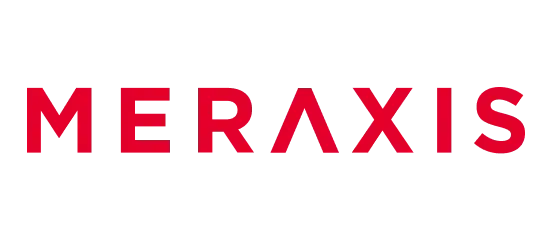
Appmodernisierung für nachhaltiges Wachstum
Lassen Sie sich nicht von Altsystemen zurückhalten. Beginnen Sie Ihre Anwendungsmodernisierung mit uns.
jahrelange Erfahrung mit DACH-Kunden
Projekte, die Qualität liefern
zufriedene Kunden aus den verschiedensten Branchen
jahrelange Erfahrung mit DACH-Kunden
Projekte, die Qualität liefern
zufriedene Kunden aus den verschiedensten Branchen
Warum Legacy-Modernisierung entscheidend ist
- Getrennte Systeme = Keine Echtzeitdaten & schwache Skalierbarkeit
- Manuelle Prozesse = Langsam, kein Remote-Zugriff & keine KI
- Schlechte UX = Frust bei Mitarbeitern & Kunden, Umsatzverlust
- Technische Schulden = Hohe Kosten, instabile Systeme & steigende Risiken
Unsere Legacy-Modernisierung bietet sichere, skalierbare und benutzerfreundliche Lösungen – für mehr Geschwindigkeit, Innovation und ein modernes Kundenerlebnis.
Von Legacy zu Modern in 4 agilen Schritten
Definieren Sie die Modernisierungsvision
Wir analysieren Ihre Legacy-Anwendungen, decken Risiken und technische Schulden auf und entwickeln gemeinsam eine klare Modernisierungsstrategie – mit Fokus auf Skalierbarkeit, Sicherheit sowie modernes UI/UX.

Ihre Altsysteme bremsen Sie aus – modernisieren Sie jetzt, bevor die Konkurrenz vorbeizieht.
Bewährte Anwendungsfälle
95% Reporting-Zeit beim Investmentfond
Ein führender Schweizer Investmentfond litt unter langsamer, manueller Berichterstattung und verstreuten Datenquellen. Intertec entwickelte eine einheitliche Datenplattform mit Azure und Databricks, die Datenpipelines automatisierte und Power BI-Dashboards in Echtzeit bereitstellte - die Berichtserstellung wurde von Tagen auf unter zwei Stunden reduziert.

75% Umsatzwachstum durch digitale Transformation
Der Polymer-Konzern Meraxis stand vor Herausforderungen durch ineffiziente, unverbundene Systeme. Intertec modernisierte die digitale Infrastruktur durch den Aufbau einer zentralen Plattform mit Kunden- und Lieferanten-Portalen, Echtzeit-Tracking, Beschaffungsautomatisierung und Finanzmanagement, um Effizienz und Wachstum zu fördern.

LabV: +90% schnellere Reports durch Daten-Transformation
LabV stand vor Problemen mit fragmentierter Datenspeicherung und ineffizientem Projektmanagement. Gemeinsam mit Intertec entstand eine moderne, zentralisierte Plattform, die Daten aus verschiedenen Geräten vereinte, Datensilos beseitigte und Echtzeitanalysen für schnellere, datenbasierte Entscheidungen ermöglichte.

Unsere Stärken in der Legacy-Modernisierung

Modernisierungsstrategie & Beratung
Wir analysieren Ihre Altanwendungen, identifizieren technische Schulden und entwickeln eine klare Modernisierungsstrategie. Von der Roadmap bis zur Umsetzung sorgen wir dafür, dass Ihre Systeme auf Geschäftsziele und Wachstum ausgerichtet sind.

UI & UX Redesign Dienstleistungen
Veraltete Anwendungen frustrieren. Mit modernem UI/UX-Design schaffen wir benutzerfreundliche, zugängliche Interfaces und steigern die Kundenzufriedenheit.

Architektur und Systemtransformation
Von monolithischen Strukturen zu Microservices – wir modernisieren Ihre Systeme für Skalierbarkeit, Ausfallsicherheit und nahtlose Cloud-Integration.

Anwendungsqualität und -sicherheit
Mit Tests, Automatisierung und modernen Sicherheitsmaßnahmen sorgen wir dafür, dass Ihre Anwendungen stabil, compliant und zukunftssicher bleiben.

End-to-End-Modernisierungslieferung
Unser Team übernimmt die komplette Modernisierung – von Altsystemen zu agilen, Cloud-nativen Anwendungen, die nachhaltige Innovation ermöglichen.
Buchen Sie eine kostenlose Beratung
Vertrauen bei führenden Unternehmen weltweit



Buchen Sie eine kostenlose Beratung
Häufig gestellte Fragen
Bei der Modernisierung von Legacy-Anwendungen werden veraltete Anwendungen, Softwaresysteme und Infrastrukturen auf moderne Technologien, Architekturen und Plattformen umgestellt. Dies ist notwendig, da Legacy-Anwendungen oft Sicherheitslücken aufweisen, nicht skalierbar sind, hohe Wartungskosten verursachen und sich nur schwer in moderne Geschäftstools integrieren lassen. Unternehmen modernisieren, um die Leistung zu verbessern, die Sicherheit zu erhöhen, die Betriebskosten zu senken und Initiativen zur digitalen Transformation zu ermöglichen.
Es gibt sieben primäre Modernisierungsstrategien, die gemeinhin als die "7 Rs" bekannt sind: Replatform (minimale Änderungen bei der Umstellung auf eine neue Plattform), Rehost oder "Lift and Shift" (Verlagerung von Anwendungen auf eine neue Infrastruktur ohne Codeänderungen), Refactor oder "Rearchitect" (Umstrukturierung und Optimierung von Code und Architektur), Repurchase (Ersatz durch kommerzielle Standardlösungen), Retire (Stilllegung nicht mehr benötigter Anwendungen), Retain (Beibehaltung bestimmter Anwendungen, wenn eine Modernisierung nicht gerechtfertigt ist) und Relocate (Verlagerung von Anwendungen in andere Umgebungen mit minimalen Änderungen). Die Wahl hängt von Faktoren wie Budget, Zeitplan, Geschäftskritik und technischer Komplexität des bestehenden Systems ab.
Zeitplan und Kosten variieren je nach Komplexität der Anwendung, gewähltem Modernisierungsansatz und organisatorischen Anforderungen erheblich. Einfache Rehosting-Projekte können 3 bis 6 Monate in Anspruch nehmen, während komplette Neuentwicklungen 12 bis 24 Monate oder länger dauern können. Die Kosten können von Zehntausenden bis zu Millionen von Dollar reichen. In der Regel amortisieren sie sich jedoch innerhalb von 1 bis 3 Jahren durch geringere Wartungskosten, verbesserte Effizienz und neue Geschäftsfunktionen.
Zu den größten Herausforderungen gehören die Komplexität der Datenmigration, die Aufrechterhaltung der Geschäftskontinuität während der Umstellung, die Integration in bestehende Systeme, Qualifikationsdefizite bei modernen Technologien und eine mögliche Ausweitung des Umfangs. Zu den Risiken gehören Systemausfälle, Datenverluste, Sicherheitsschwachstellen während der Umstellung und der Widerstand der Benutzer gegen Veränderungen. Erfolgreiche Projekte mindern diese Risiken durch gründliche Planung, schrittweise Vorgehensweisen, umfassende Tests und strenge Änderungsmanagementverfahren.
Suchen Sie nach Anbietern mit nachgewiesener Erfahrung in Ihrer Branche und Ihrem Technologie-Stack, einer Erfolgsbilanz erfolgreicher Modernisierungsprojekte und relevanten Zertifizierungen. Bewerten Sie die Methodik, den Risikomanagement-Ansatz und das Supportangebot nach der Modernisierung. Berücksichtigen Sie Faktoren wie kulturelle Übereinstimmung, Kommunikationsstil, geografische Präsenz und die Fähigkeit, sowohl technisches Fachwissen als auch Unternehmensberatung anzubieten. Fordern Sie Fallstudien, Kundenreferenzen und detaillierte Projektvorschläge an, bevor Sie eine Entscheidung treffen.

